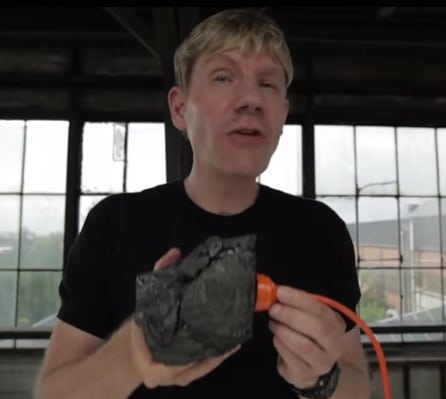The Australian taxpayers’ short, fractious, “on again, off again” relationship with climate science contrarian Bjorn Lomborg has come to an end.
Lomborg’s think tank, the Copenhagen Consensus Center, was once courted by the prior Australian government with an offer of $4 million of taxpayer funding to set up shop at a university. But this week it was revealed during parliamentary hearings that the government had quietly withdrawn the offer of funding.
Lomborg is the president and founder of the Copenhagen Consensus Center (CCC) think tank, registered in the United States with no actual discernible connection to Copenhagen.
The Danish political scientist is known for his attacks on renewable energy and claims that the world’s poorest nations need fossil fuels to solve energy poverty issues.
Investigations by DeSmog have revealed how the Copenhagen Consensus Center think tank had attracted funding from conservative foundations, including that of controversial “vulture capitalist” and Republican Party benefactor Paul Singer.
DeSmog also unravelled a constant claim from the CCC that it worked with “seven Nobel laureates” — we discovered that one had died two years previously, while others had only a minimal involvement with the center.
In April, the University of Western Australia announced it was to establish a research center that would partner with Lomborg’s CCC.
But it later emerged that funding for the center had come from a $4 million government grant which was not initially disclosed in the university’s publicity.
Leading climate economist Dr Frank Jotzo criticised Lomborg and his center’s approach, saying it had “no academic credibility” and that the so-called “consensus methodology” was flawed.
After weeks of campaigning and public criticism — much of it from academics and students — the UWA Vice Chancellor Paul Johnson announced that his university was handing the money back. He said the university was in an “untenable position as it lacks the support needed across the University and the broader academic community to meet its contractual obligations”.
The rejection prompted a campaign in support of Lomborg, backed by a group with links to climate science denial and free market activism, while other shrill conservative voices claimed that “freedom of speech” demanded that Lomborg be allowed to establish the centre.
Flinders University in South Australia emerged as another suitor to Lomborg, prompting a campaign by academics and students.
The Guardian reported that the dean of the school of social and policy studies at the university, Debra King, wrote that her staff did not support any plan to work with Lomborg, due to his “academic legitimacy and the politicisation of the process of establishing a partnership”.
Writing in The Australian newspaper, which ran many editorials and stories supporting the consensus project, Lomborg protested that his centre had been misrepresented and that it would not be focusing on climate change.
Lomborg’s column appeared in the newspaper on October 13 but, according to reports, the decision to drop the $4 million from the federal budget had been made almost a month earlier.
Subscribe to our newsletter
Stay up to date with DeSmog news and alerts






